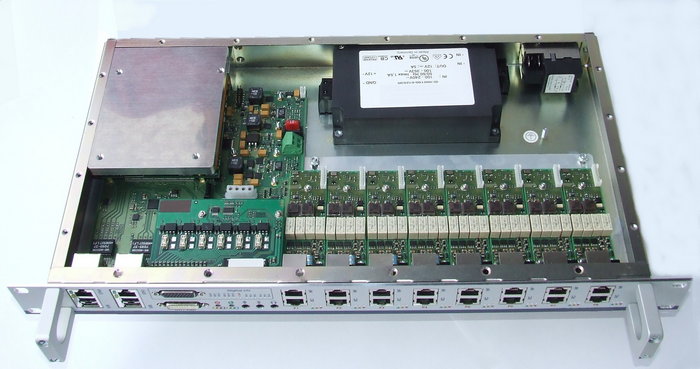Merkmale und Schnittstellen
- Lüfterloses Design
- Intel Atom(R)-CPU auf COM-Express-Modul
- Solid State Drive
- DSP Texas Instruments TMS320C6424 über PCI-Bus an das COM-Express-Modul angekoppelt
- 8 Audio-Codec-Kanäle direkt vom DSP aus ansprechbar
- Bis zu 8 Analog/Digital Interface-Module mit jeweils eigenem ATMEL-Microcontroller für I/O-Aufgaben und Schnittstellenbedienung
- Bis zu 8 programmierbare I/O-Kanäle (Audio I/O, Digital-I/O, RS232 etc)
- VGA
- DVI-D
- 2 * LAN / Ethernet (separate Interfaces ohne Switch)
- 4 * USB 2.0
- PC-AC97-Audio (MIC, Line-Out, Headset)
- Galvanisch getrennte Digital-I/O mit galvanisch getrennter Hilfsspannung
- Reset-Taster
- Ein/Aus-Taster
- LED-Statusanzeigen
Software-Support
- Betriebssystem Linux oder Windows, optional QNX
- DSP-Low-Level-Treiber incl. DSP-EDMA-Support (Programmierung mit Texas Instruments Code Composer Studio)
- Komplettes Board-Support-Package bestehend aus:
- Linux DSP-PCI-Kernel-Modul
- Linux DSP-Boot-Utility
- Linux Host-FIFOs und Middleware-Ebene incl. Kernel-Modul zur
- komfortablen und hochperformanten Integration des DSPs in
- Linux-User-Space-Applikationsprogramme
|

|

